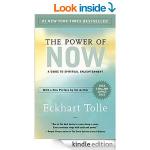I have always had a deep passion for reading. Starting young, I’d soak up every type of fiction that my school and city library carried. Initially, I held a safe distance from the characters in my novels, but as I got older, I distinctly remember becoming emotionally invoked by certain personality types, particularly, the “know-it-all.” I would scoff and roll my eyes at the character. It seemed completely natural to be put off by this behavior.
It was a new year, new school, new city, and a new level of education. I was in Junior High, officially, but puberty had yet to make an appearance. I put my books aside in order to make friends. Soon enough, I bonded with a girl, Janice, over roller coasters. A few months later, Janice’s parents took a few of us to Great America for her birthday. As we listened to Janet Jackson’s “Nasty,” over and over, I was ecstatic about our teen adventure. It was better than any of my books!
When we arrived, Janice’s parents paid for our own room. I felt so grown up. That was until, Janice and her two friends pulled out cigarettes and began smoking on the balcony. The three of them smoked and talked about their sexual exploits that my unchanged body didn’t relate to. Still in a training bra, I had just ditched my cootie repellent along with my Barbies and wasn’t ready for sex and cigarettes at twelve years old. I tried to fit in by asking too many questions that they couldn’t answer and having too many answers that they couldn’t dispute. Needless to say, no one spoke to me on the way back home.
After the trip, Janice told me that I could no longer hang out with her and her friends. She was quite nice about it, actually. She simply said that I made everyone uncomfortable. So much so, her friends started calling me names and she didn’t want that for me. Shocked, I asked what they called me. “Smarty Pants, the Insufferable Know-It-All,” rolled off her tongue as though there should be no real surprise by their epithets. Yet, I was surprised. How could anyone relate me to those characters that I despised in my books?
In truth, I didn’t care if I hung out with those girls again. I didn’t want to be an adult. I was perfectly content being a teenager. I was only trying to find a way to relate to them and clearly, that didn’t happen. I wasn’t sure what to make of Janice’s friends so I returned to my books to regroup.
Interestingly, my next young adult novel was about a girl who was trying to make friends in Junior High. At the beginning of the book, the main character was a know-it-all, but this time, instead of being annoyed at the character, I felt sorry for her. I realized that she was simply lonely and trying too hard. I began to wonder if that’s how I was coming across to Janice’s friends. Hmmm...
As soon as this self-reflective light bulb popped over my head, I became distracted and forgot all about the incident. I had just made my first real and fantastic friend. We became inseparable and to this day, she is one of my closest friends. Truth be told, her unconditional acceptance made all the second guessing go away and my loneliness disappear. Although I noticed the correlation in junior high, it would be another ten years, before I began to understand what it all meant.
“Everything that irritates us about others can lead us to an understanding of ourselves.”
– Carl Gustav Jung
When I read this quote in college, a memory resurfaced that I hadn’t given thought to since seventh grade. I began to connect the dots from Janice’s friends to my childhood books. Finally, it hit me; I was the “Insufferable Know-It-All.” It was my childish way of proving that I was worth something. Conversely, to admit my mistakes undermined my self-worth. As this blurry understanding came into focus, I realized my annoyance over this personality type reflected what I didn’t like in myself. Why couldn’t I see this before?
This was the point in my life when I began to admit that I was wrong. Instead of arguing, I tossed out catch phrases like, oops, you’re right, and my bad. I no longer needed to be right all the time and in truth, I felt free. I guess that we can begin to see the pieces of the puzzle years, even decades before. However, only when we are emotionally ready, are we able to put these pieces in their rightful place so that we can see the bigger picture.


